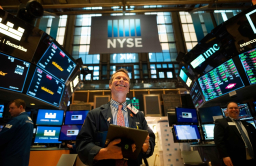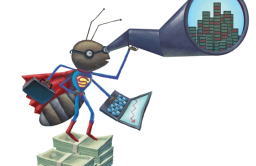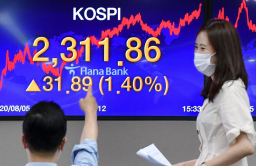-
KOSPI 2577.27 -2.21 -0.09%
-
KOSDAQ 722.52 -7.07 -0.97%
-
KOSPI200 341.49 +0.02 +0.01%
-
USD/KRW 1396 -2.00 0.14%
Korea’s Ants dump single-day record $2.7 bn shares, turn eyes overseas
Year-end review
Korea’s Ants dump single-day record $2.7 bn shares, turn eyes overseas
Their selling spree was aggravated by attempts to avoid heavy year-end taxes on capital gains, analysts say
By
Dec 29, 2021 (Gmt+09:00)
3
Min read
News+
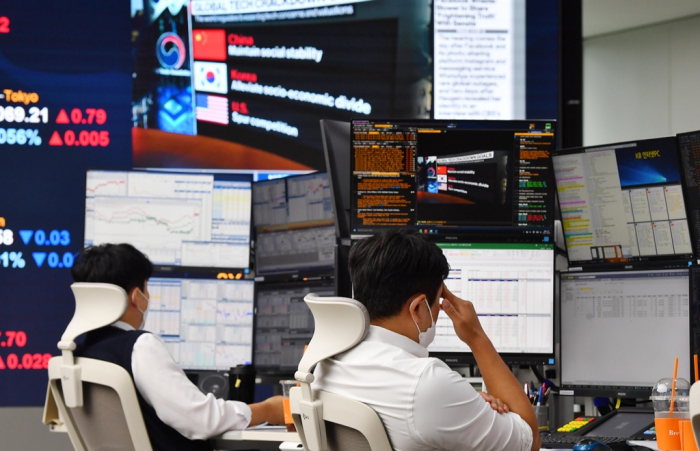
South Korea’s retail investors on Tuesday dumped 3.16 trillion won ($2.7 billion) worth of shares on the country’s two main stock markets, setting a new record for single-day divestment as they increasingly turn their eyes overseas for higher returns.
It is not unusual for individual investors to book year-end profit, but the sheer volume this year represents an accelerating money move abroad looking for higher-yielding equities, analysts said.
A recent market rebound has also prompted some deep-pocketed individuals to unload their shares to avoid heavy taxes on capital gains before year-end.
According to the Korea Exchange, retail investors sold nearly 2 trillion won in shares on the Kospi market and 1.16 trillion won on the junior Kosdaq market on Dec. 28, bringing their total sales to an all-time high of 3.16 trillion won for a single day.
The previous record daily sales by individuals were 2.13 trillion won on Feb. 25.
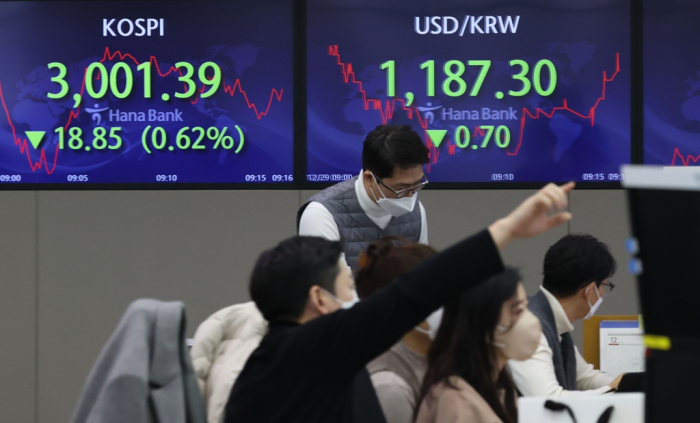
Back then, Korea’s retail investors, widely known as “the Ants” because of their relatively weak influence and smaller stock holdings, went on a selling spree to cut losses amid a market downturn.
This time, they are selling to take profit on a rising market. Despite their heavy selling, the Kospi index closed up 0.7% at 3,020.24 on Tuesday, boosted by foreign and institutional buying.
Retail investors’ selling focused on blue chips, which had largely been on an ascending trend.
Samsung Electronics Co. topped the Ants’ most-selling stock of the day list with a net 584 billion won worth of the shares, followed by L&F Co., a battery materials maker, SK Hynix Inc. and Celltrion Inc.
Industry watchers said rich individuals also dumped their shareholdings just two days before this year’s market close as they are subject to a 25% tax on capital gains if they own more than 300 million won worth of shares in any single company and sell them in the following year. If their shareholdings of a particular company are above 1 billion won, the tax rate is 20%.
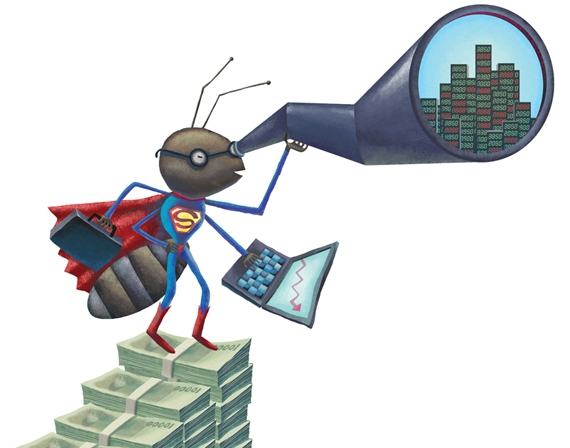
ANTS, THE LITTLE GIANTS
Traditionally, Korea’s retail investors closely followed foreigners’ moves, looking for direction. But in a significant deviation from past practices, they started to have their own way in stock trading last year, heavily buying even as foreigners and local institutions engaged in panic selling amid fears of a coronavirus-driven slowdown.
Accounting for more than two-thirds of all transactions on the Kospi market and nearly 90% of transactions on the Kosdaq, the Ants emerged as the biggest force on local bourses, boosting the Kospi index to close 2020 at a record high.
Some local media jokingly dubbed the heavy buying by an army of small investors the "Donghak Ants Movement," a reference to the 19th-century "Donghak (meaning Oriential) Peasant Movement," a peasant revolt against rich and foreign invaders.
Retail investors’ growing influence in the market also rattled the nation’s big companies in their key business decisions.
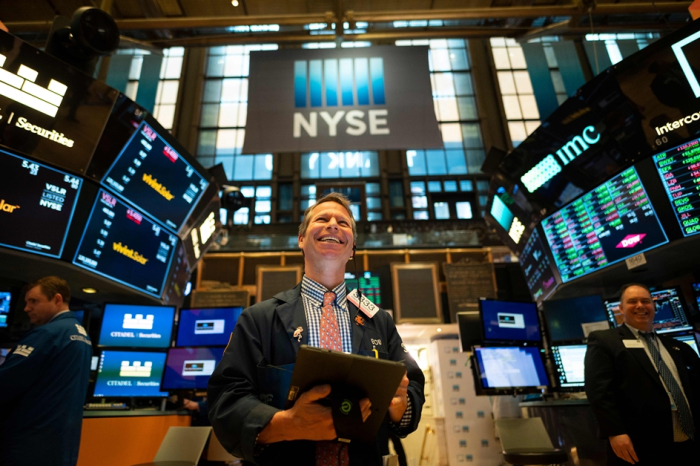
GO WEST
As the domestic market often turned volatile, gripped by the resurgence of the COVID-19 pandemic and the quick spread of the Omicron variant, Korean investors have begun looking beyond local bourses for higher returns.
The Ants as well as institutional investors were predominantly attracted to US stocks.
According to the Korea Securities Depository (KSD), Korean investors bought $3.16 billion worth of foreign stocks this month until Dec. 24. Tesla Inc. was their top pick among foreign shares, with purchases reaching 1.4 trillion won.
So far this year, Koreans have purchased a net $22.6 billion in foreign stocks, up 14.8% from the same period a year earlier.
Some pundits called their aggressive buying of foreign stocks the “Seohak (meaning Western) Ants Movement” as opposed to the Donghak Ants Movement.
Write to Yun-Sang Ko at kys@hankyung.com
In-Soo Nam edited this article.
More To Read
-
 Year-end reviewKosdaq: Perennial bush league as blue chips favor Kospi
Year-end reviewKosdaq: Perennial bush league as blue chips favor KospiDec 28, 2021 (Gmt+09:00)
-
Dec 31, 2020 (Gmt+09:00)
-
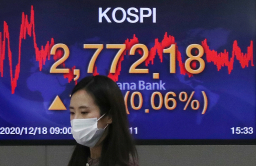 Year of ants investorsKorea’s retail investors shed loser image, turn pandemic into bonanza
Year of ants investorsKorea’s retail investors shed loser image, turn pandemic into bonanzaDec 21, 2020 (Gmt+09:00)
-
Sep 18, 2020 (Gmt+09:00)
-
Aug 05, 2020 (Gmt+09:00)


